4 Early Warning Signs of a Bad Employee
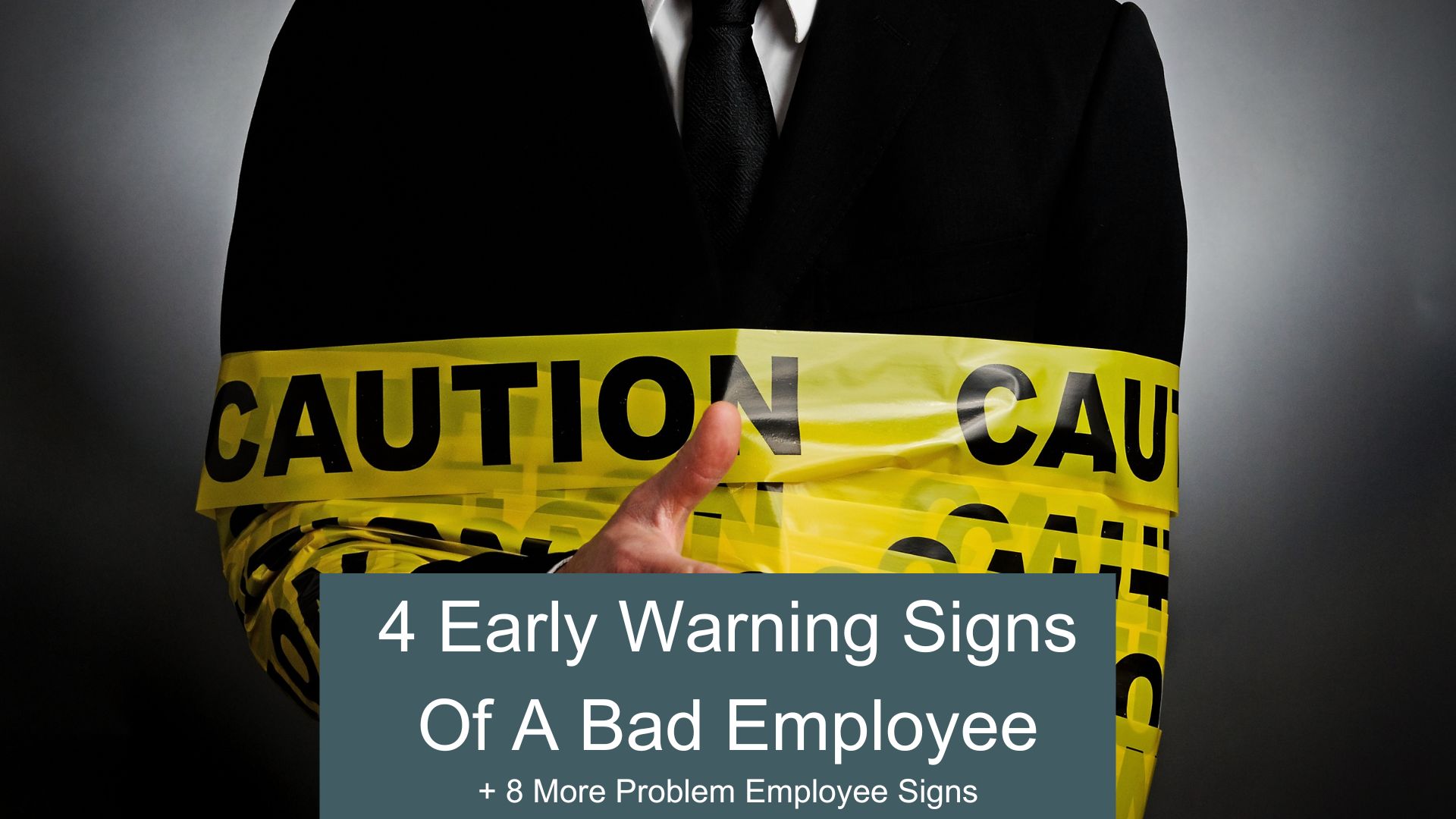
As a manager of a team, there are early warning signs of a bad employee that you definitely want to be looking out for. You might have just recruited a new person or taken over another team. Spotting signs of a bad employee as quickly as possible reduces the problems you have to deal with. You can take corrective action with them early before the problems become significant. The last thing you want is to lose lots of time dealing with entrenched underperformance or poor behaviour, causes of big disruptions to the team, missing of team targets, or incur big costs removing and recruiting new staff.
4 Early Warning Signs of a Bad Employee
- Lack of openness
- Lack of self-honesty and self-awareness
- Refusal to accept or action corrective feedback
- Poor communication skills
I will explain exactly what to look out for and why it is so important for each of these. Towards the end I also touch on 8 further signs that are commonly seen as signs of a bad employee. If you are seeing any of these 8 warning signs of poor employees, the problems have progressed and you definitely want to take action.
In my 20 years plus of managing teams, the 4 warning signs of a bad employee I share are signs that consistently come up in the run up to poor behaviour or underperformance coming to the fore. These signs can be the result of other issues so do investigate as soon as you see these 4 early warning signs of a bad employee.
Watch on YouTube
Listen on Podcast
A Lack of Openness – The first warning sign of a bad employee
When an employee is struggling or being lazy or experiencing some other issue with work, they often try to hide their lack of progress or the issues they are facing. The desire to hide the issue is a pretty natural reaction for most of us. Not advertising issues in one thing. Trying to avoid revealing an issue when directly asked about it is a much more serious issue.
I usually ask team members to show me progress rather than tell me about progress. I recently asked a new person to show me their progress and he subtly moved the conversation away from the request to avoid showing me anything. Unfortunately, I knew exactly what he was doing and on pushing the issue and checking, it was obvious that he simply wasn’t doing what he was claiming.
My trust of that person was pretty much destroyed.
Being open is a great way to build trust and it is a great way to get the help you need. I learnt quickly to resist the temptation to hide issues from managers and colleagues. Instead I go to them straight away, say I am having problems and ask for their help. This works 100 times better for me than hiding problems.
I appreciate that we don’t all work for managers we trust or have a good relationship with. Proactively be as open and honest as you think is sensible and don’t hide anything if you are directly asked.
As a manager, always keep a careful eye out for any employee that appears to be trying to avoid being open about what they are doing. When you see this, nine times out of ten, there are issues that are causing them to hide what they are doing.
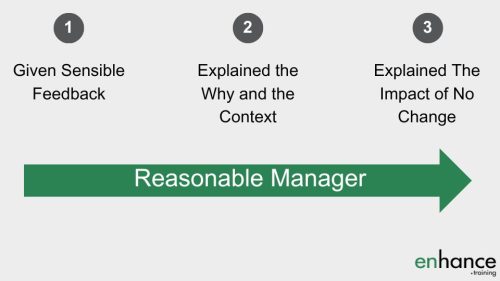
a Lack of self-honesty and self-awareness – The second warning sign of a bad employee
If an employee is not willing to accept they have a problem, then they are unlikely to learn or change what they are doing.
I have had employees – when confronted with concreate proof of underperformance – sit there and deny there is a problem. Most situations are not this extreme. Instead, you often get a list of excuses. Before the other person agrees there is a problem, you have to work through the list of excuses disproving each one in turn, which takes time.
Issues with behaviour are harder to prove and easier for employees to deny to themselves and others.
Aside from preventing learning, a lack of self-honesty and self-awareness is a problem because it means you will need to intervene a lot more as the person is likely to make a lot more mistakes or keep making similar mistakes. This situation is very frustrating, annoying and time consuming. You or other team members will spend time rectifying mistakes rather than on more value adding work, which in turn reduces team performance.
A lack of self-honesty and self-awareness is one of the warning signs of a problem employee.
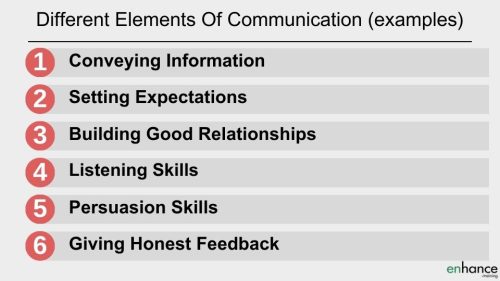
Refusal to accept or action corrective feedback – The third warning sign
Assuming that you are a reasonable manager – you have given sensible corrective feedback, explained the why and the context and taken the employee through the impact of not changing on the team and business. If -after doing all this – the employee doesn’t make any effort to change, then I would view this as a big warning sign of a bad employee.
Dealing with difficult employees and individuals that are not team players will take up your time and energy. Having these individuals in the team will also act as a drag on team performance and create resentment in the team. None of this is good for you or the team.
If an employee unreasonably refuses to accept corrective feedback, the first step is to find out why. Have they had bad experiences in the past? Do they have issues trusting you? Or are they scared of change? Or are they simply a difficult employee would be better off not being in your team?
Find out the reasons behind the refusal to accept corrective feedback or refusing to take action to change. Then you can decide the best course of action. Don’t ignore this warning sign of a problem employee.
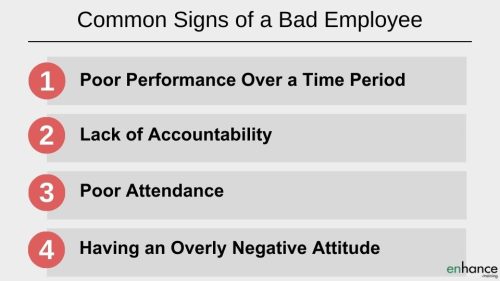
The fourth warning sign of a bad employee is Poor communication skills
The ability to communicate impacts everything a team does. The better and clearer the communication, the easier it is to work as team and hit team targets. The better the teamwork, the better the results the team produces.
Communication covers so many areas, some being:
- The ability to convey information clearly and in an easy-to-follow way
- Setting expectations
- Building good personal and professional relationships
- Listening skills
- Persuasion skills
- Giving open honest feedback
There is a long list.
When an employee does not communicate – with you as a manager or with their team members, it becomes a lot harder to work with that person or rely on them.
When an employee is not very good at communicating you are much more likely to have issues with conflict between team members, misunderstandings, confusion and poor expectation management … all of which lead to higher tensions and lower team performance.
Poor communication has a very direct and detrimental impact on team performance. Employees that are weak communicators are less likely to perform.
Poor communication skills is one of the warning signs of bad employees. Take action to find out what the underlying issues are and help them improve or move them out of your team.
8 more commonly recognised signs of a bad employee
I expect that you have come across many of these signs. When one or more of these signs are present, I would start corrective action with the employee pretty quickly. I personally don’t think a manager can afford to let any of these traits or outcomes persist for any length of time within a team – without losing team trust and having a negative impact of team motivation and performance.
The eight common signs of a bad employee are:
1 – Poor performance over a period of time
2 – Lack of accountability – examples are getting excuses and attempts to shift the blame
3 – Poor attendance – if the employee is not working, then how can they deliver great work, be relied on etc.
4 – Having an overly negative attitude – negativity can spread within a team, and impact team performance. Team members can be negative – such as always looking for the problems – and be very useful and productive team members. Work out where the line is for your team.
5 – Overly resistant to authority – when employees go out of their way to make life difficult for the team and manager
6 – Lack of initiative or motivation
7 – Unable or unwilling to work with others
8 – Ethically questionable actions and decisions – these will impact the team culture, motivation and performance over time.
Whenever you see any of these signs, start investigating what is going on with the individual, and then take corrective action quickly.
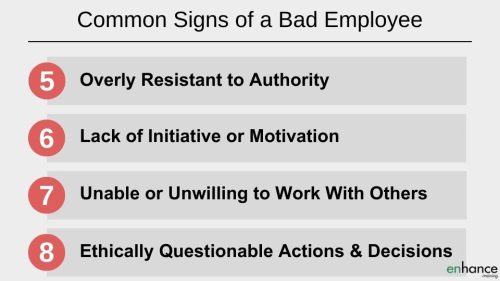
in summary
Difficult or problematic team members cause a lot of headaches for you the manager and your team. If you are able to avoid small problems become larger or removing problematic staff members while they are in probation periods for instance, you will have a much easier time managing your team and the team will perform a lot better.
Always investigate any of the signs we have gone through today, find out what the causes are and then take corrective action if appropriate.
The 4 early warning signs of a bad employee I look out for are:
- Lack of openness
- Lack of self-honesty and self-awareness
- Refusal to accept or action corrective feedback
- Poor communication skills
And the eight more common signs of a bad employee are
- Poor performance
- Lack of accountability
- Poor attendance
- Having an overly negative attitude
- Overly resistant to authority
- Lack of initiative or motivation
- Unable or unwilling to work with others
- Ethically questionable actions and decisions
Bad employees can make managing a team a nightmare. They increase your stress levels, suck up your time and energy and bring the whole team down. Avoiding bad employees or at least spotting them early to enable quick action is super super useful.
Knowing the signs to look out for enables you to take action earlier, which usually means a lot less effort and energy needs to be put in to correct or prevent issues developing. Using the 4 early warning signs have been incredibly useful in my career to date.






